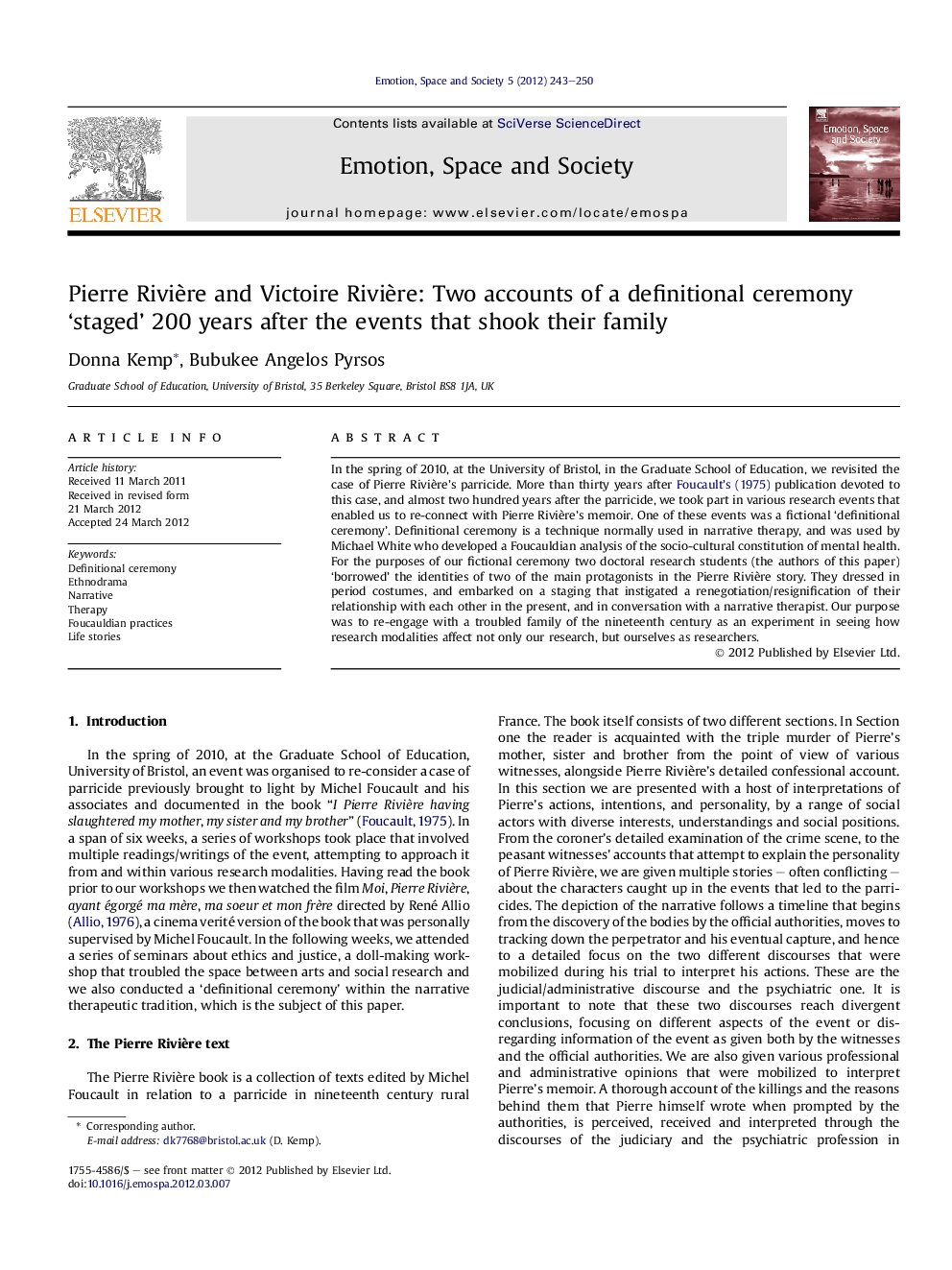| کد مقاله | کد نشریه | سال انتشار | مقاله انگلیسی | نسخه تمام متن |
|---|---|---|---|---|
| 946726 | 926213 | 2012 | 8 صفحه PDF | دانلود رایگان |

In the spring of 2010, at the University of Bristol, in the Graduate School of Education, we revisited the case of Pierre Rivière's parricide. More than thirty years after Foucault's (1975) publication devoted to this case, and almost two hundred years after the parricide, we took part in various research events that enabled us to re-connect with Pierre Rivière's memoir. One of these events was a fictional ‘definitional ceremony’. Definitional ceremony is a technique normally used in narrative therapy, and was used by Michael White who developed a Foucauldian analysis of the socio-cultural constitution of mental health. For the purposes of our fictional ceremony two doctoral research students (the authors of this paper) ‘borrowed’ the identities of two of the main protagonists in the Pierre Rivière story. They dressed in period costumes, and embarked on a staging that instigated a renegotiation/resignification of their relationship with each other in the present, and in conversation with a narrative therapist. Our purpose was to re-engage with a troubled family of the nineteenth century as an experiment in seeing how research modalities affect not only our research, but ourselves as researchers.
Journal: Emotion, Space and Society - Volume 5, Issue 4, November 2012, Pages 243–250